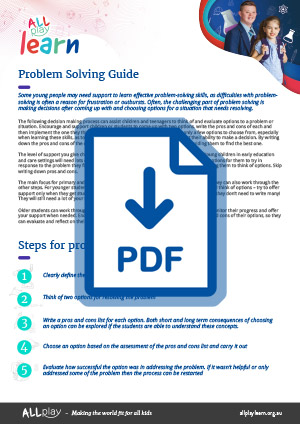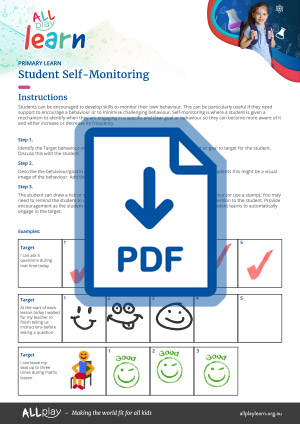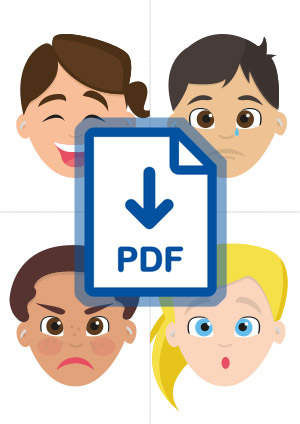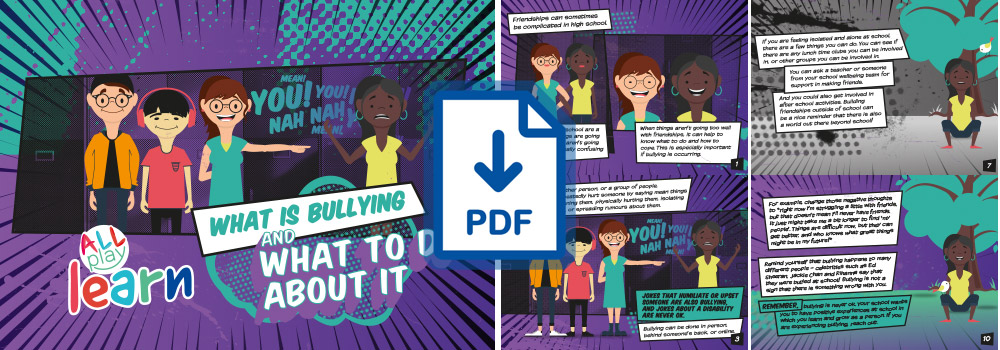
Emotions
On this page:

About emotions and emotion regulation
Supporting students to develop emotion regulation skills will be important for many aspects of their lives, including in education and future employment settings, in their interpersonal relationships, and for their own social and emotional wellbeing. Students with disabilities and developmental challenges often need extra support with understanding and regulating their emotions. As a teacher you can help support all students with these skills.
Emotion regulation involves recognising, managing and expressing emotions in adaptive ways, and allows young people to learn, socialise and engage in daily activities. Supporting young people to develop emotion regulation strategies helps build their resilience and coping skills, giving them the resources to cope and succeed when faced with challenges. Resilience also helps to protect young people from low mood, anxiety and other mental health problems, which can arise during adolescence.
Students with disabilities or developmental delays often need extra support and time to learn emotion regulation skills. Some students (such as those with autism, intellectual disability, or oppositional defiant disorder) will find it hard to identify emotions and behave in socially appropriate ways. They may experience more outbursts, defiance and other challenging behaviours which may be caused by difficulties with emotion regulation.
Some young people develop emotion regulation and resilience more independently, while others may need extra support to learn these skills. With the appropriate support young people can learn to manage their emotions and develop into resilient young adults.

Evidence-based strategies
Teach students a variety of skills to regulate emotions
Teach young people how to manage problems
Create a positive school and class environment

Best practice tips
Focus on student strengths to build self-esteem
Make the most of uncomfortable situations or emotions
Validate emotions
Emotion card games

Other considerations

Relevant resources
Visit our resources page for a range of resources that can help to create inclusive education environments for students with disabilities and developmental challenges. Some particularly relevant resources for supporting students with emotional issues include:




